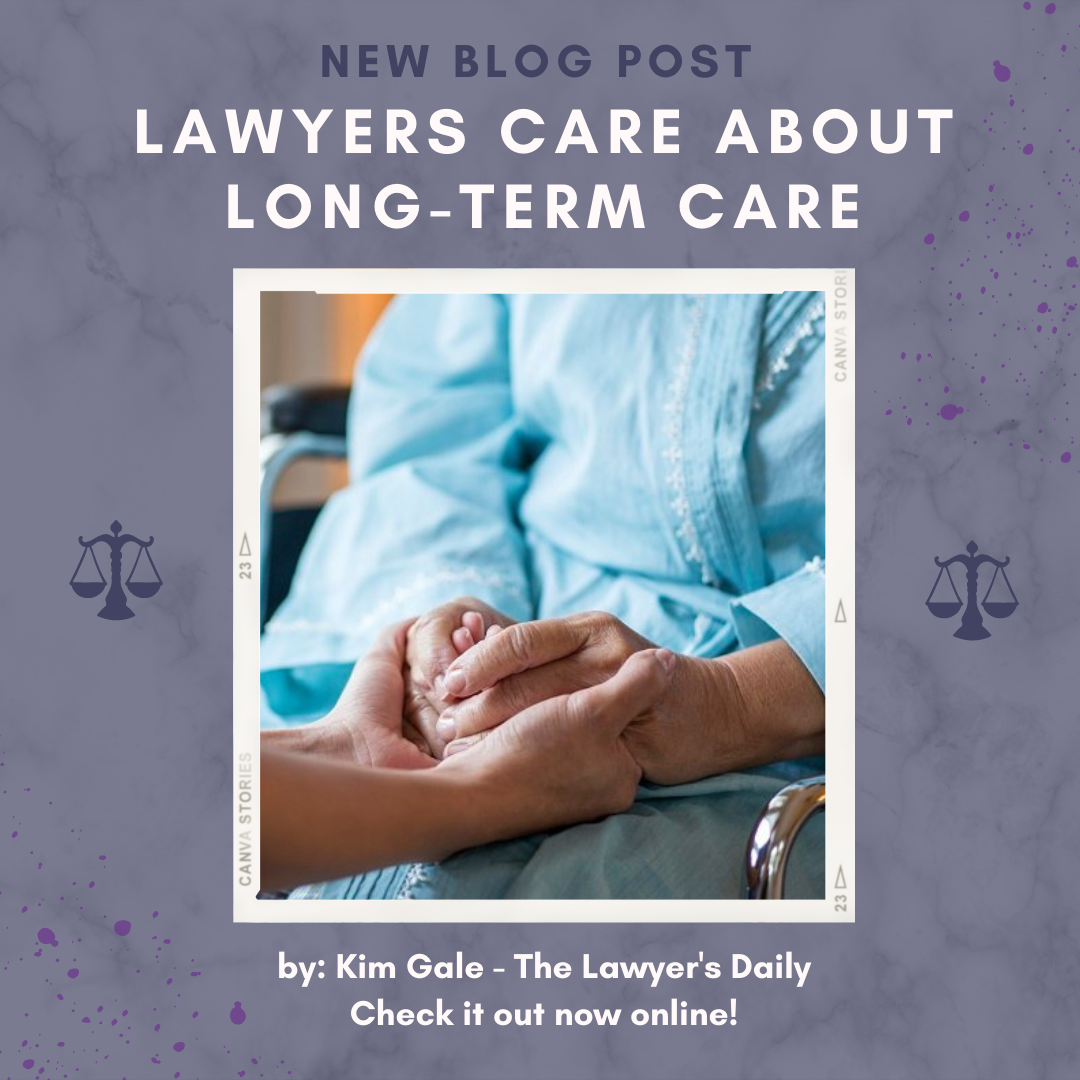Elder law: What it is and why it’s important

Co-written by: Kim Gale and Lorissa Jaipaul
Elder law, broadly speaking, is the area of law focused on legal issues from the perspective of the older adult whose rights are in issue. When it comes to elder law itself, the legal issues that arise and the needs of the clientele are unique.
How to recognize elder abuse
The first step in becoming aware of elder abuse is knowing how to identify it and what to do about it. Elder abuse may entail physical, emotional, verbal, financial, sexual and/or psychological abuse that is inflicted upon elderly individuals. It can also entail behaviours such as controlling, blaming and/or neglecting them. If you know of someone who is at risk of or currently experiencing elder abuse, it is imperative that they speak to a lawyer to know what their rights are. There are various organizations available to assist the elderly population with legal issues, such as the Advocates Centre for the Elderly (ACE).
Wearing purple to support world elder abuse awareness
June 15th, 2024 is World Elder Abuse Awareness Day (WEAAD) and the colour to recognize this day is purple. People will be wearing purple to commemorate WEAAD.
On June 20, 2024, back by popular demand, the Ontario Bar Association (OBA) will be hosting a day- long Elder Law Day professional development program at the OBA Conference Centre located at 20 Toronto St. in Toronto, from 9 a.m. to 4 p.m.
Panel discussions will include:
Collaborative law
The day will begin with a panel discussion on Dispute Resolution Options and How to Implement Collaborative Law into your Practice. ADR and collaborative law are relevant and growing areas of law, particularly within elder law. This panel will provide attendees with the opportunity to expand their skills and knowledge on ways to resolve elder law disputes and will explain how collaborative law can be used in this process.
Collaboration is a key part of all legal disputes, whether it be collaborating with your clients or with the opposing party or counsel, collaboration is essential to successful outcomes in the area of elder law. Accordingly, building off of our discussion on collaborative law, we will also be providing advice, tips and means for working with others in the field during our Working Effectively with Other Professionals offerings.
Collaborative law can assist in dispute resolution, whereby trained lawyers assist their clients in the resolution of their conflicts by way of co-operative strategies rather than adversarial techniques. The goal of collaborative law is to amicably resolve these disputes without needing to start legal proceedings in court. As it pertains to elder law, collaborative law is used to create proactive plans for future care and assistance, create care plans for elderly individuals who have become disabled and/or incapacitated, address and resolve disputes over elderly individuals’ right to live independently, guardianship and capacity, and much more.
Emerging trends
To help attendees stay up to date on all things elder law, we will also be having a panel that will be providing A Look at the Current Legal Landscape and Emerging Trends. Staying up to date with the current legal landscape and emerging legal trends is important in every area of law, but it is especially important in elder law due to the needs, vulnerabilities and sensitivities of the clientele.
Likewise, for lawyers and legal professionals working in this field whose work intertwines with elder law and/or who are just merely interested in expanding their knowledge, it is extremely important to stay up to date on the relevant case law. Our Elder Law Day event will also be hosting a panel in which important case law updates will be discussed and expanded on.
Keynote: Sidney Peters
We will also be having a keynote address from Sidney Peters, who is the Public Guardian and Trustee. Her keynote address will be a valuable opportunity for attendees to get insight into elder law and the work that the Office of the Public Guardian and Trustee does to assist and advocate for the elderly.
Award of Excellence
The OBA annually presents an Award of Excellence in Elder Law. This award was created to recognize outstanding members of the OBA for their exceptional achievements, distinguished service and significant contributions in serving elderly Ontarians. This year, we will be dedicating this award to Judith A. Wahl, who was a fierce advocate for the rights of seniors. The OBA will be doing a tribute to Judith’s life and extensive contribution to this practice area.
Baby boom generation
Finally, to wrap up all things elder law, we will also be having a panel on Serving the Baby Boomer Generation. This panel will help attendees learn some of the best strategies, approaches and means for working for and working with their aging client base.
If you are interested in elder law or looking to learn more about it, please join us on June 20 to learn about the most pressing issues impacting our aging population. Our expert faculty will get you up to speed on the latest developments in the area of elder law and share need-to-know insights to take your expertise to the next level.
This article was originally published by Law360 Canada part of LexisNexis Canada Inc.



